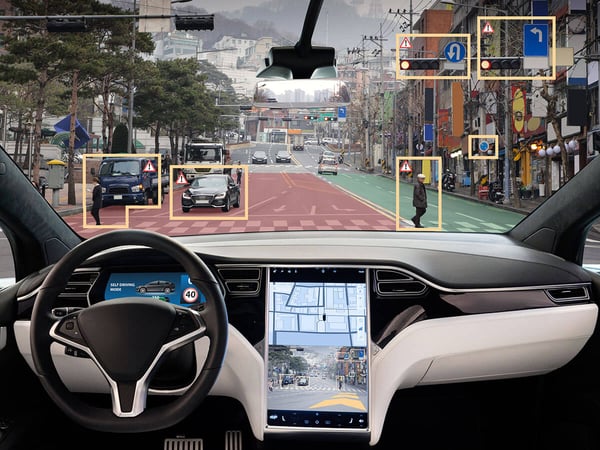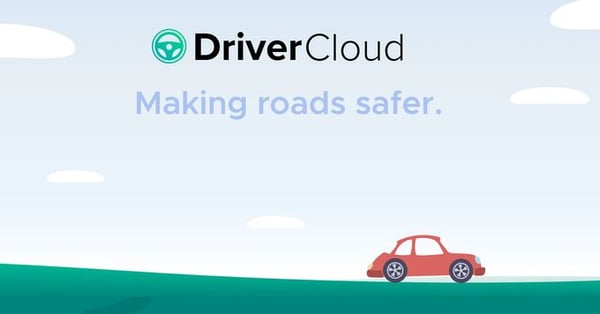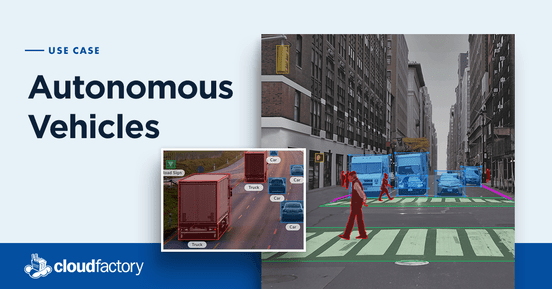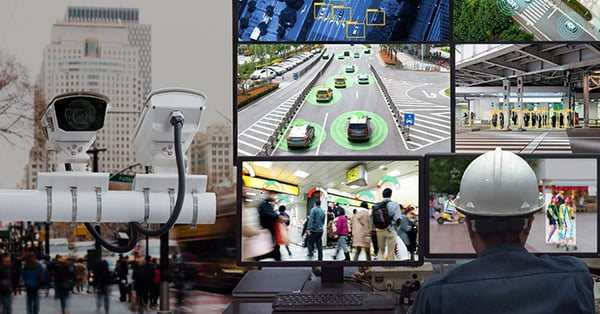Overview
Luminar, an autonomous vehicle sensor company, turned to CloudFactory for 3D annotation to launch its new first-of-its-kind product, Hydra. The CloudFactory team completed complex 3D image annotation—labeling everything from humans, animals, empty roads, and unknown objects.
Services Used
- Computer Vision Managed Workforce
Read the client story that follows, or download a PDF version you can reference later.
Industry
Transportation
Headquarters
Florida, USA
Company Size
251-500
Meet Our Client
For companies in the autonomous vehicle (AV) industry, excellence is the only option. The lives and safety of passengers and pedestrians hinge on high-quality AI programs, regardless of how difficult they are to create. Luminar specializes in LiDAR (light detection and ranging) perception and is an emerging leader in the AV space, both of which require a higher level of excellence for true innovation.
With an ambitious goal of developing the most advanced long-range perception solution on the market, these trailblazers set out to increase reaction time and improve safety for the autonomous vehicle system as a whole, addressing all levels of autonomy.
Seeking a provider who could bring skill and attention to highly complex labeling work, including object volume, extensive oddities, and requirement specificity, Luminar put CloudFactory to the test.
Their Challenge
Luminar’s ability to exceed sight range goals relied on ultra-precise, expanded image annotation. With safety as the driving priority, quality and consistency were more than standard criteria, they were life or death imperatives.
Having been down this road before, Luminar had grown frustrated with outsourcing solutions that could annotate large volumes of data, but significantly missed the mark when it came to complexity and standards. The intricacy and sophistication of the work required was far more challenging for untrained resources with disparate leadership. Proficiency in the most robust object detection was critical to the vision, and there was no room for error.
These challenges necessitated the mobilization of a highly trained and experienced workforce deeply committed to the outcome of every task and associated minutiae.
Complex requirements included annotating every individual element within an image, whether perceived as relevant to the driver’s view or not. From humans to animals, empty roads to unknown objects—every element had to be accounted for.
Those oddities that humans recognize and respond to but could be problematic for machines, like background clutter, distance, and partial view obstruction, were also incorporated. Plus, Luminar’s model demanded unique labeling requirements for items such as sidewalks, unreachable lanes, gas stations, parking lots, trees, and signage—attention to every detail was essential.
A final requirement for this already complex project was that Luminar required the work to be completed within its own tool. The inability for many outsourcing providers to adapt to an outside tool and for Luminar to adopt an insufficient platform was costing them time and money.
Our collaboration with CloudFactory was instrumental in bringing to market our new product, Hydra. This advanced version of our platform now includes a combination of hardware and software capabilities that dramatically increases our perception of on-road driving scenarios, something completely new to the industry.
Scott Ryvola
Director of Engineering

Our Solution
CloudFactory heard Luminar’s challenge and understood what was necessary to reach the extended site range goal. We immediately recognized the complexity of tasks and that the precise quality requirements meant an extended learning curve. Having an experienced workforce that was patient with the detail and volume of tasks, skilled at spotting idiosyncrasies, and adept at learning new requirements was crucial. Leaving education and management to the untrained and inexperienced was also far too great a risk; a dedicated project manager would be vital to keep Luminar and its CloudFactory team aligned.
Insight, expertise, and skill were required to make this partnership successful. To mitigate risk, CloudFactory recommended a pilot program leveraging an agile approach that optimized learning through intensified training and a continuous feedback loop.
Within the pilot, CloudFactory suggested a sprint approach to streamline the continuous development necessary to address the complexity of Luminar’s specific requirements and to adjust at a more rapid and meaningful pace. The benefit of the sprint approach was to gain the most productive input on the process directly from the client as work was in development.
“Designing a pilot program leveraging train-the-trainer and sprint methods was a smart approach for Luminar. This offered a thoughtful way to train the team and allowed them to quickly assess abilities and throughput. That level of transparency and accessibility made all the difference,” said Adam Rich, CloudFactory Account Executive.
Our team of data analysts received customized training that included nine sets of unique Luminar task guidelines. They began by deconstructing requirements to drive greater understanding and increase the team’s ability to acclimate to the complexity of every segment.
The team executed tasks in a time-boxed, iterative cycle with actionable feedback from the client that allowed for the broadest range of the most inclusive annotations achievable and directly aligned to the technical requirements for an increase to the extended sight range.
“The upfront training coupled with CloudFactory’s online tool suite was super helpful and something no other provider could offer. The critical piece for us was good communication and this all helped us to get through the switching cycle with greater risk reduction and direct insight and control into immediate results,” said Scott Ryvola, Director of Engineering.
Shorter sprints with real-time feedback and direct oversight by the dedicated project manager proved to be extremely productive. With immediate results, Luminar’s confidence in CloudFactory's abilities was quickly realized. Check-ins with their project manager were reduced to once a week, and valuable internal Luminar resources were redirected to reaching its LiDAR extended sight range goals.
The Results
The agile pilot approach with clearly defined sprints and goals was a major success. Dissecting each piece to accommodate the unique requirements in edge cases defined by Luminar ensured a more knowledgeable and confident workforce and reduced the risk of errors, increasing overall quality and throughput.
Upon completion of the pilot program, Luminar was able to achieve the superior AI results required to realize its goal. Luminar’s engineers developed a LiDAR sensor with a range of 250m, significantly advancing the level of safety requirements possible in the autonomous vehicle space.
Now fully established with a dedicated workforce custom trained to support growth and future projects, Luminar is setting new heights in the autonomous vehicle industry.
Recommended Reading
We have 10+ years of experience helping our clients focus on what matters most. See what we can do to help your business.
Driver Technologies Fuels Innovation for Motorists
CloudFactory helped Driver boost dashcam app performance and create a database of annotated images for AV innovators.
Autonomous Vehicles
AV companies around the world continue to find new ways to make this method of transportation even safer and more reliable.
Sensor Company Case Study
Sensor-as-a-service start-up finally finds an annotation solution that can help them expand.
Contact Sales
Fill out this form to speak to our team about how CloudFactory can help you reach your goals.





